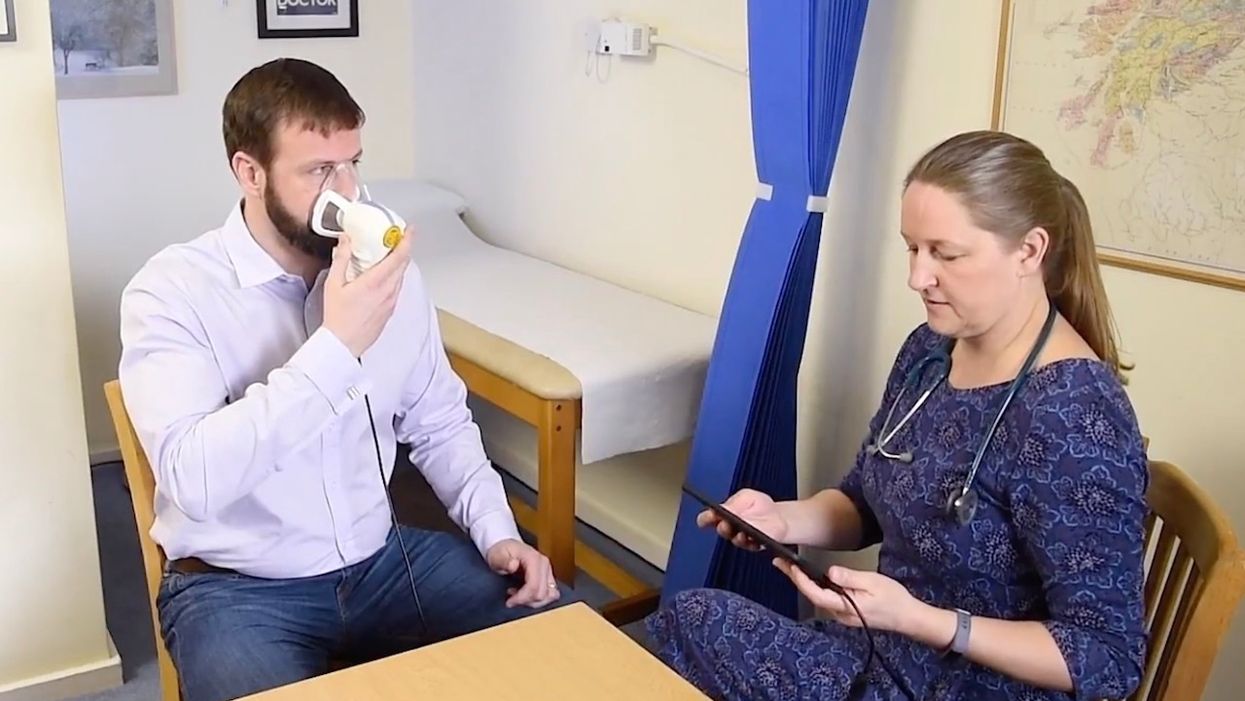
Image source: Owlstone Medical YouTube video screenshot

Researchers will recruit 1,500 patients for its two-year clinical trial
Researchers in the United Kingdom announced Thursday the launch of a clinical trial for a breathalyzer device that the company believes could be used for early cancer detection in patients.
"We urgently need to develop new tools, like this breath test, which could help to detect and diagnose cancer earlier, giving patients the best chance of surviving their disease," professor Rebecca Fitzgerald, the lead trial investigator at the Cancer Research UK Cambridge Centre, said in a news release.
Owlstone Medical has developed its non-invasive Breath Biopsy technology that's designed to help doctors detect early changes in volatile organic compounds, known as VOCs, exhaled from a patient's breath.
The initial two-year trial plans to recruit 1,500 patients suspected of having esophageal and stomach cancers. It plans to expand the study to include prostate, kidney, bladder, liver, and pancreatic cancers in the coming months, according to the release.
Trial participants will be asked to breathe into the breathalyzer device for 10 minutes. The device will collect VOCs, which scientists will analyze for breath-based biomarkers with aims to detect and identify various types of cancer.
Cancer cells alter metabolism even at the very earliest stage of disease, affecting the pattern of the VOCs exhaled, the release said.
"Through this clinical trial we hope to find signatures in breath needed to detect cancers earlier — it's the crucial next step in developing this technology," the release continued. "Owlstone Medical's Breath Biopsy technology is the first to test across multiple cancer types, potentially paving the way for a universal breath test."
Cancer is the second-leading cause of death globally, according to the World Health Organization.
Last year, WHO estimated 9.6 million deaths were attributable to cancer. Lung, colorectal, stomach, liver, and breast cancer are the most common causes of cancer death.